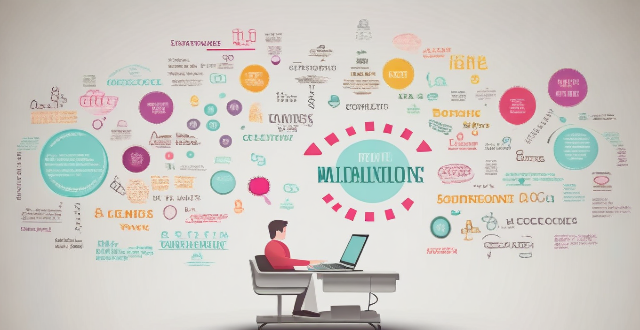The text discusses the challenges faced by adult learners in the process of lifelong learning, including time constraints, lack of motivation, access to resources, technology barriers, and cognitive abilities. It provides solutions to overcome these challenges such as prioritizing time, setting clear goals, exploring resource options, staying informed about technology trends, and adopting effective study strategies. The text emphasizes the importance of lifelong learning for personal and professional development and adapting to a rapidly changing world.

Challenges Faced by Adult Learners in the Process of Lifelong Learning
Lifelong learning is a continuous process that involves acquiring new knowledge, skills, and attitudes throughout one's life. It is essential for personal and professional development and helps individuals adapt to the rapidly changing world. However, adult learners face several challenges in the process of lifelong learning. In this answer, we will discuss some of these challenges and provide solutions to overcome them.
Time Constraints
One of the biggest challenges faced by adult learners is time constraints. Many adults have multiple responsibilities such as work, family, and social commitments, which make it difficult for them to allocate enough time for learning. This can lead to stress and burnout, making it challenging to maintain a consistent learning schedule.
Solution: Prioritize your time and create a realistic learning schedule that fits into your daily routine. Break down your learning goals into smaller, manageable tasks and allocate specific time slots for each task. Use tools like calendars, reminders, and timers to stay on track and avoid procrastination.
Lack of Motivation
Another challenge faced by adult learners is lack of motivation. As they progress through their careers and personal lives, some adults may lose interest in learning or feel that they have already achieved their goals. This can lead to a lack of enthusiasm and reduced effort in the learning process.
Solution: Set clear and achievable learning goals that align with your personal and professional objectives. Find ways to stay motivated by celebrating small successes along the way and seeking support from peers, mentors, or online communities. Consider enrolling in courses or programs that offer certifications or badges to showcase your achievements and boost your confidence.
Access to Resources
Adult learners often face challenges in accessing resources needed for their learning journey. These resources may include textbooks, online courses, tutoring services, or even technology devices required for digital learning. Limited access to these resources can hinder their progress and make it difficult to keep up with the pace of change in their fields.
Solution: Explore various options for accessing resources such as public libraries, community centers, online platforms, or educational institutions offering free or low-cost courses. Take advantage of open educational resources (OER) available on the internet and consider collaborating with peers or forming study groups to share resources and knowledge.
Technology Barriers
As technology continues to evolve at a rapid pace, adult learners may face challenges in keeping up with the latest tools and software required for digital learning. This can lead to frustration, anxiety, and a sense of being left behind in the ever-changing tech landscape.
Solution: Stay informed about the latest trends and advancements in technology by attending workshops, webinars, or online courses focused on digital literacy skills. Seek assistance from colleagues or friends who are tech-savvy and ask them to guide you through new tools and applications. Invest in reliable devices and software that meet your learning needs and budget.
Cognitive Abilities
As adults age, they may experience declines in cognitive abilities such as memory retention, attention span, and processing speed. This can make it more challenging for them to learn new information or acquire complex skills compared to younger learners.
Solution: Adopt effective study strategies such as active reading, note-taking, summarizing, and self-testing to enhance memory retention and comprehension. Use mnemonic devices or visual aids to help remember key concepts and break down complex information into simpler chunks. Take regular breaks during study sessions to avoid cognitive overload and maintain focus.
In conclusion, adult learners face numerous challenges in the process of lifelong learning, including time constraints, lack of motivation, access to resources, technology barriers, and cognitive abilities. By implementing practical solutions such as creating a realistic learning schedule, setting clear goals, exploring resource options, staying informed about technology trends, and adopting effective study strategies, adult learners can overcome these challenges and continue their journey towards personal and professional growth.